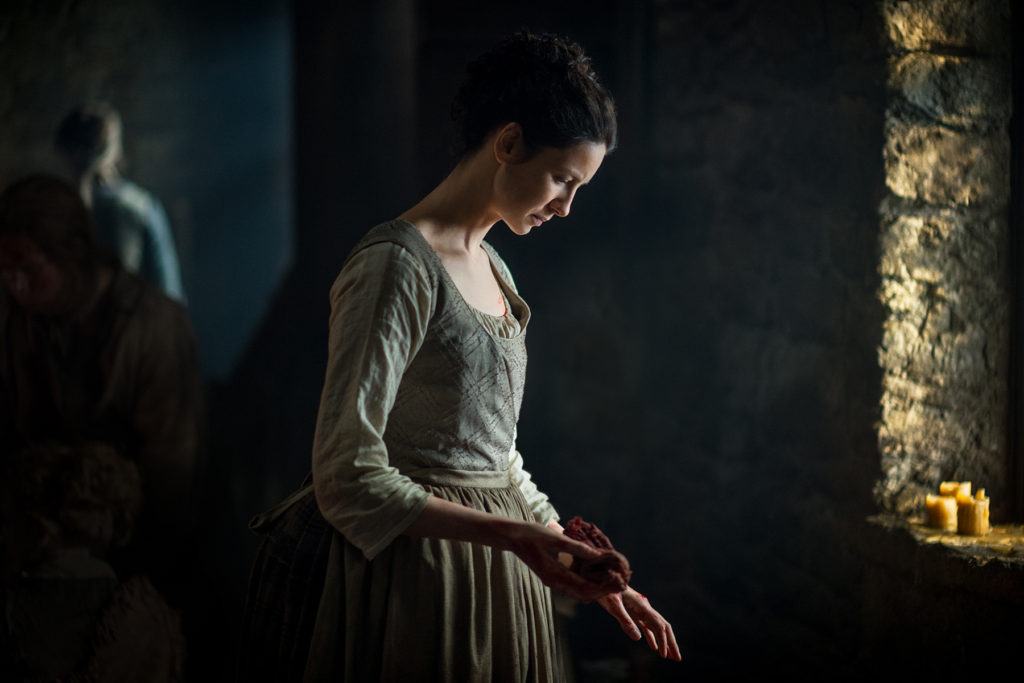Rolling Stone has a new interview with Caitriona Balfe up on their website. (Unsure if it will be in the magazine. While some of the questions are the same we have seen in other interviews (some are the same as season one questions), Caitriona comes off intelligent, strong, and defensive of Outlander. This has to be one of my favorite interviews from this season thus far. Below are excerpts, but please head over to Rolling Stone to read the entire interview (well worth it!).
Outlander has been called “feminist Game of Thrones” in that it has as much, if not more, violence and nudity, but avoids being exploitative even at its most brutal or unflinching — what do you make of that characterization?
I think our shows are very different, but I don’t think we would have gotten a place on the air if hadn’t been for that series opening the doors for genre shows and fantasy shows like ours. So in that context, thank you very much, Game of Thrones!We never made a conscious decision to go out there and make a feminist show. But our source material is written by a woman, who is so accomplished and so feisty. Half of our writing room is female, and we try to get female directors when we can. And our heroine, the woman at the center of it all, Claire, she’s quite a feisty woman too. So I think almost by default we have a feminist viewpoint. Ron [D. Moore, the show’s creator] was adamant from our very first meeting that Claire is a sexual woman and that’s a big part of her character — it’s not something she shies away from. But if we’re going to have sex on the show or violence, it’s going to tell a story. It’s going to be there for a reason. And we all fight very hard to make sure that it’s kept that way.
Creators of period pieces tend to justify rampant misogyny in their storylines with “that’s the way it was back then”…
I think there’s a bad version, definitely, of shows like ours where it’s very much a bodice ripper. The heroine, even though she’s supposed to be strong, is still always this damsel in distress. None of us want to make that show.The thing about fantasy is that you have these wonderful, wide parameters within which to explore great themes — but the difficulty is making it believable. To get people really engaged, you also have to bring it down to the ground and make it as truthful and as honest as possible. I always feel that people are very much as they were — you know, we haven’t evolved that much as human beings. We still have the same dreams and hopes and fears and wants. Even though we’ve evolved technologically or in an industrial way, our human spirit is quite similar.
What’s your perspective on the series’ rape scenes? Notably the one between Jamie and Black Jack …
Those scenes are very hard to watch. I’ve only seen each of them once … obviously, they’re quite intense. But I also feel that they were justified — you need to see how broken Jamie is and the way that Black Jack [played by Tobias Menzies] was able to poison the one safe space in his heart and his soul, which is his relationship with Claire. Jamie is a man who can take a physical beating; he has many times. Black Jack’s perversion is that he wants to break Jamie’s spirit. So many people were like, “Oh is he gay?” No! It’s not about that – he’s a sadist. It’s all about power.
Source: Rolling Stone
